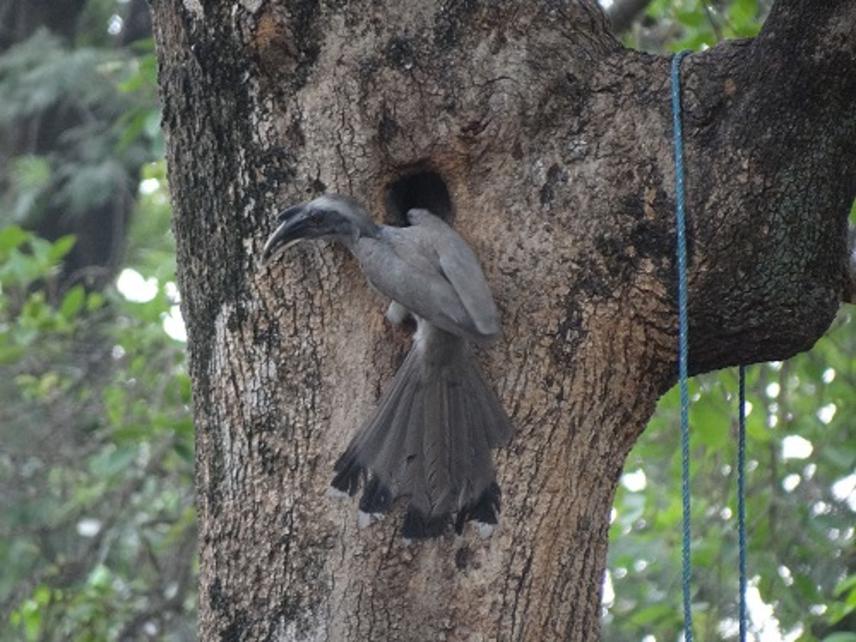Raman Kumar
Other projects
5 May 2015
Enhancing Public Awareness to Foster Conservation of Keystone Species in Human-Dominated Landscapes: Hornbills in Western Himalayas
In continuation with the previous Rufford project, the main aim of the proposed project is to create awareness among people about the critical components of the ecosystem – hornbills and fig trees and the importance of ecological relationships. This will be done through (a) expanding the network of schools covered in Phase 1; (b) designing activities for schoolchildren; (c) producing the Hindi version of the previously produced children's storybook'; (d) setting up nature clubs in select schools; (e) initiating an activity centre for children; (f) developing audio-visual short film clips; (g) conducting interactive sessions with adults through nature walks and other public events.
The other aim of our project is to gather ecological data on trees in human-dominated areas using citizen science approaches. Data will be collected on mapping and monitoring trees, particularly those providing resources to hornbills, and observations on hornbills.

Nest of Indian Grey Hornbill being monitored.
Pervasive changes in land-use reduce the abundance of ecologically suitable trees and affect the functional role of critical species like hornbills that are long-range dispersers of plant seeds. In our previous project in the Western Himalayas (India) we used the hornbill-fig tree system as a flagship to successfully create public awareness through school programmes, public walks and by producing a storybook. Building upon our previous initiatives this project aims to
(1) increase the geographical range, effectiveness and interactivity of awareness programmes conceived previously
This will be done by:
a - expanding the network of schools covered in Phase 1;
b - designing activities for schoolchildren;
c - producing the Hindi version of the previously produced children's storybook';
d - setting up nature clubs in select schools;
e - initiating an activity centre for children;
f - developing audio-visual short film clips;
g - conducting interactive sessions with adults through nature walks and other public events.
(2) harness citizen science to gather data on hornbills and trees in urban and rural areas